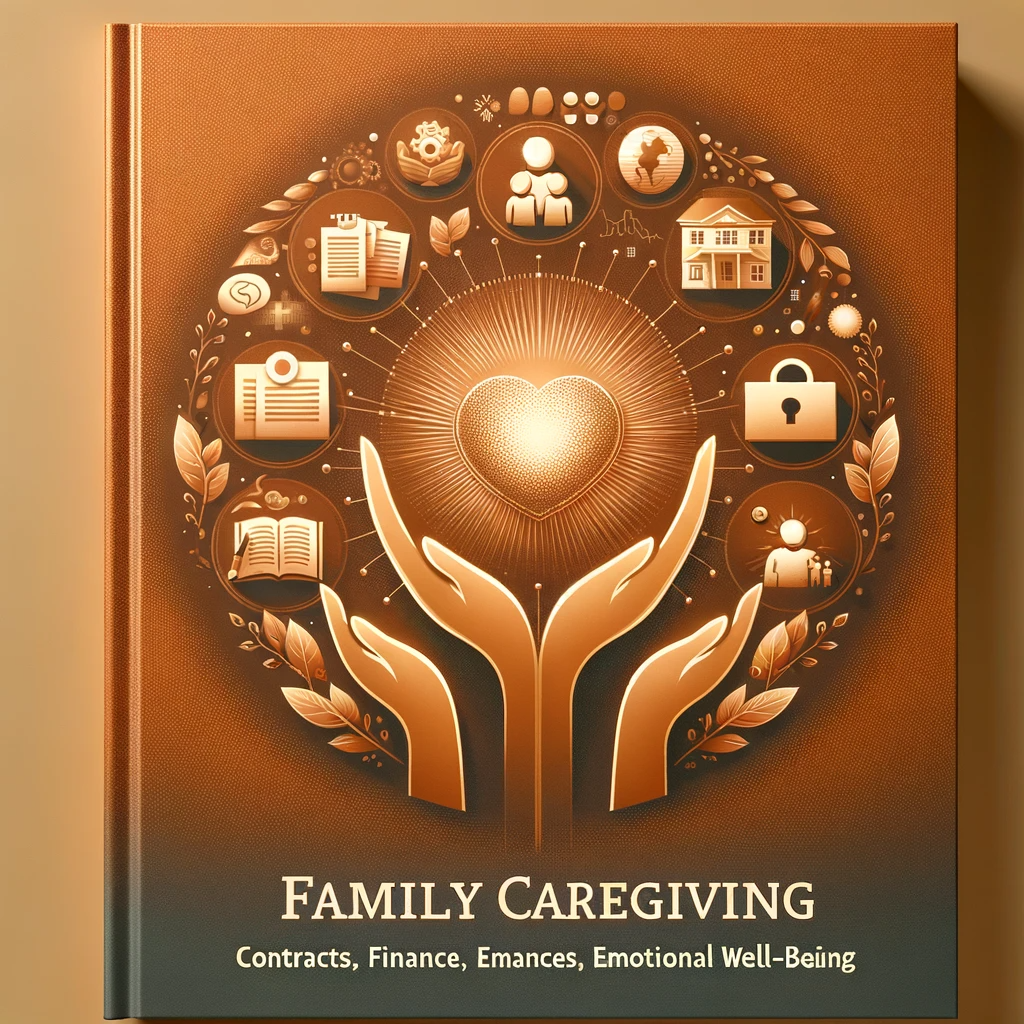Navigating the Complexities of Caregiving: A Comprehensive Guide for Family Caregivers
Discover key insights for family caregivers in "Navigating the Complexities of Caregiving: A Comprehensive Guide." This resource covers everything from legal agreements, financial compensation, building support networks, to managing long-distance caregiving and emotional challenges.

Elizabeth asks,
My mother is 94 years old. She is living in her own home and wants to remain there for the duration of her life.
I live 6 hours away from her but am willing to move in with her. Here is my concern: I would have to give up my job to do so. As life goes on, I have bills I am responsible for and want to stay current.
Is there a way I can put my life here on hold, move to her home, and get paid for taking care of her?
-Elizabeth

Balancing Compassion and Financial Needs: Strategies for Paid Family Caregiving
Dear Elizabeth,
Your situation is one that resonates with many who find themselves in the role of a caregiver for an aging parent. The desire to provide personal care while managing financial responsibilities is a common and challenging scenario. Fortunately, there are ways to navigate this situation effectively.
Caregiving for older adults is a responsibility that many family members undertake, whether they are living with the care recipient or providing long-distance support.
This article explores various aspects of family caregiving, focusing on both live-in and long-distance caregiving scenarios. We will delve into the intricacies of creating a family caregiver contract, the benefits of such an agreement, and the importance of building a care team or support group.
Warm Regards,
Diane Carbo RN
The Evolution of Family Caregiving
Family caregiving has evolved significantly over the years. Today, it often includes a wide range of responsibilities, from providing emotional support and managing health concerns to addressing the specific needs of those with chronic illnesses like Alzheimer's disease. The role of family caregivers is essential in ensuring the well-being of aging parents or older family members, especially those in poor health.
Live-in vs. Long-Distance Caregiving
Live-in caregivers typically share a home with the care recipient, providing direct support and personal care. This arrangement allows for immediate response to health problems and facilitates ongoing, daily caregiving roles. However, it can also lead to caregiver depression due to the intense, round-the-clock nature of the job.
In contrast, long-distance caregiving involves providing care from afar. While this may include coordinating health care and support services, it often lacks the hands-on aspect of direct caregiving. Long-distance caregivers face unique challenges, such as managing care from a distance and feeling guilty for not being physically present.
Importance of a Family Caregiver Contract
Regardless of the caregiving arrangement, establishing a family caregiver contract is crucial. This contract is a formal agreement that outlines the responsibilities, financial aspects, and other critical elements of caregiving. It ensures that both the caregiver and the care recipient have a clear understanding of expectations and helps prevent misunderstandings.
Benefits of a Caregiver Contract
A caregiver contract can offer numerous benefits:
Clarity of Roles: It defines the caregiving responsibilities, helping to manage expectations.
Financial Arrangements: It can include provisions for the caregiver to be paid, which is essential for those providing unpaid care.
Legal Protection: It serves as a legal document that can be useful for public policy or insurance purposes.
Part of the Spend Down Process for Medicaid
A family caregiver contract can play a crucial role in the process of "spending down" assets for Medicaid eligibility, particularly for older adults requiring long-term care. This strategy is often employed when an aging parent or older family member needs to meet Medicaid's asset limits to qualify for long-term care benefits, such as nursing home care or home health services.

Key Aspects of a Family Caregiver Contract for Medicaid Spend Down
Formal Agreement: A family caregiver contract is a formal, legally-binding document that outlines the caregiving services provided by a family member (often adult children) to their aging parent or older adult family member. This contract should detail the specific caregiving responsibilities, including personal care, medical care, providing emotional support, assisting with chronic conditions like Alzheimer's disease, and managing health problems.
Compensation for Caregiving Services: Under the contract, the family caregiver receives compensation for their services. This payment is considered a legitimate expense and can be used to spend down the older adult’s assets to qualify for Medicaid. It's crucial that the compensation is for caregiving services actually rendered and is in line with what professional caregivers would receive for similar services to avoid it being considered a gift or transfer for Medicaid eligibility purposes.
Medicaid Compliance: The contract must comply with Medicaid’s rules and requirements. It should be executed before the caregiving services begin, and the payment rates should reflect fair market value for caregiving services in the community. Rates that are too high might be flagged by Medicaid as a means to deplete assets quickly.
Record Keeping: Detailed and accurate record-keeping of services provided and payments made is essential. This includes maintaining timesheets, invoices, and records of financial transactions. These records will be necessary if Medicaid reviews the older adult’s finances when assessing eligibility.
Involvement of Legal and Financial Advisors: Consulting with professionals experienced in elder law and Medicaid planning is recommended. They can help ensure that the contract meets legal standards and does not jeopardize Medicaid eligibility.
Benefits of a Family Caregiver Contract in Medicaid Spend Down
Asset Reduction: Legitimately reduces the care recipient's assets, helping them qualify for Medicaid.
Support for Caregivers: Provides financial support to family caregivers, often adult children, who may have to reduce work hours or leave their jobs to provide care.
Quality Care from Family Members: Allows the older adult to receive care from trusted family members, often resulting in better emotional support and personalized care.
Preventing Improper Asset Transfer: Avoids the risk of Medicaid penalties associated with improper transfer of assets, as the payments to family caregivers are for actual services rendered.
Family caregiver contracts are a valuable tool in Medicaid planning, especially for families dealing with the complexities of long-term caregiving for aging parents with health concerns or chronic illnesses. These contracts allow for the provision of care by family members while ensuring compliance with Medicaid's asset and income rules. It is a practical approach to managing the dual challenges of ensuring quality care for older adults and maintaining financial stability for family caregivers. However, it's important to navigate this process with professional guidance to ensure all actions are in line with Medicaid regulations and public policy.
Building a Care Team and Support Group
Creating a support network is vital for caregivers. This can be in the form of a care team that includes health professionals, service organizations, and informal caregivers like friends and family members. Support groups, whether for specific conditions like Alzheimer's caregiving or general caregiver support, provide emotional backing and practical advice.
Benefits of Having a Support Group
Emotional Support: Caregivers can share their experiences and feelings, reducing the sense of isolation.
Resource Sharing: Access to community-based services, latest research, and advice on managing chronic conditions or preventing falls.
Practical Help: Assistance with tasks like grocery shopping or yard work, crucial for maintaining the caregiver’s own needs and health.
Caregiving, whether in close proximity or from a distance, is a complex role that requires significant emotional, physical, and often financial commitment. Understanding the importance of formal agreements like a caregiver contract and the value of a support network can greatly enhance the caregiving experience. Both live-in and long-distance caregivers must prioritize their well-being and utilize available resources to ensure the best care for their loved ones and themselves. This holistic approach to caregiving benefits not only the care recipient but also the caregiver, promoting healthy aging and a higher quality of life for all involved.




